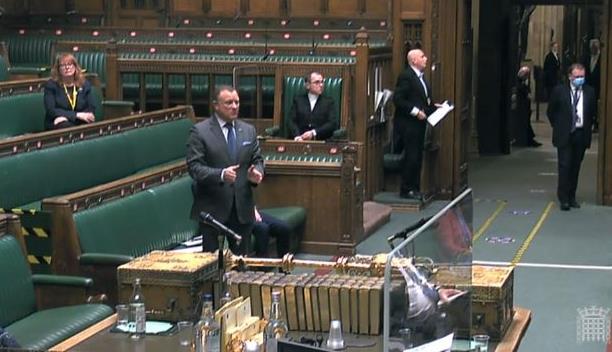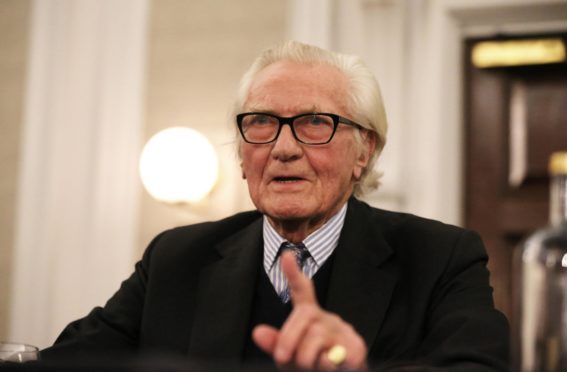SNP MP Drew Hendry has defended a House of Commons stunt that saw him suspended from the chamber for 24 hours.
The Inverness MP was ordered from the Commons after he grabbed the ceremonial mace and attempted to leave the debating chamber.
He was eventually stopped by the doorkeepers, who took the mace from him.
MPs could be heard describing Mr Hendry’s actions as “outrageous” and referring to it as “another boring stunt”.
Managed to get the whole thing from the right angle.
Turns out Drew Hendry also went for the mace – so well done to him! pic.twitter.com/qIGEQTaAbn— Martin J Keatings #VoteAFI2 (@MartinJKeatings) December 16, 2020
The mace is the symbol of royal authority and without it neither House can meet or pass laws.
The move came at the end of a furious back and forth between Mr Hendry and the government benches over Brexit.
Mr Hendry was angered by the passage of the UK Internal Market Bill, which he described as a “democratic outrage” that will “demolish devolution“.
The Bill gives Westminster the power to spend in devolved areas and thus provides the potential for the Scottish Government to be sidelined on future projects.
Mr Hendry told us he did not have “a second of regret” over his actions.
He said: “The Bill is a democratic outrage and, yesterday, the Tories, with a complicit Labour Party, pushed through a Bill which seeks to demolish devolution.
“The UK Government now have the ability to control spending in areas of economic development, infrastructure, culture, education, water, power, gas, telecoms, railways, housing, health and justice.
“The people of Scotland did not vote for the Tories to take these decisions at Westminster.
“My protest saw me thrown out but, in drawing attention to this power-grabbing Bill and looking after the rights of my constituents and of the Scottish people, I do not have a second of regret.”
Deputy Speaker Dame Rosie Winterton remarked that Mr Hendry had been “very childish”, before undertaking the formal procedure of “naming” him in order to suspend him from the House for the day’s sitting.
Who else has grabbed the mace?
In 1976, the then-shadow industry secretary, Michael Heseltine, waved the mace at the Labour benches after his Conservative opposition lost by one vote on a bill.
His shadow cabinet colleague James Prior wrested it from his hands and the Speaker suspended the sitting. Heseltine was made to apologise the next day.
In 1988, Edinburgh Leith MP Ron Brown seized the mace during a debate on benefit appeals.
He dropped it, causing £1,500 in damage. His fellow Labour MPs registered their disapproval by removing the party whip from him for three months, though his reaction probably summed up better the feelings of his supporters back home: “If that bauble or ornament is more important than all the struggle, there is something wrong with this party.”
The former shadow chancellor John McDonnell took the mace from its place in 2009, when he was a backbencher.
Mr McDonnell was suspended from the Commons for five days for grabbing it in protest at the government’s decision to allow a third runway at Heathrow airport.
Labour MP Lloyd Russell-Moyle took hold of the mace during a Brexit debate in 2018. Mr Russell-Moyle was unhappy at Theresa May’s decision to pull a Commons vote on her Brexit deal.
Speaking at the time, Mr Russell-Moyle said: “The symbolic gesture of lifting the mace and removing it is that the will of Parliament to govern is no longer, it has been removed, and I felt Parliament had effectively given up its sovereign right to govern properly.”




